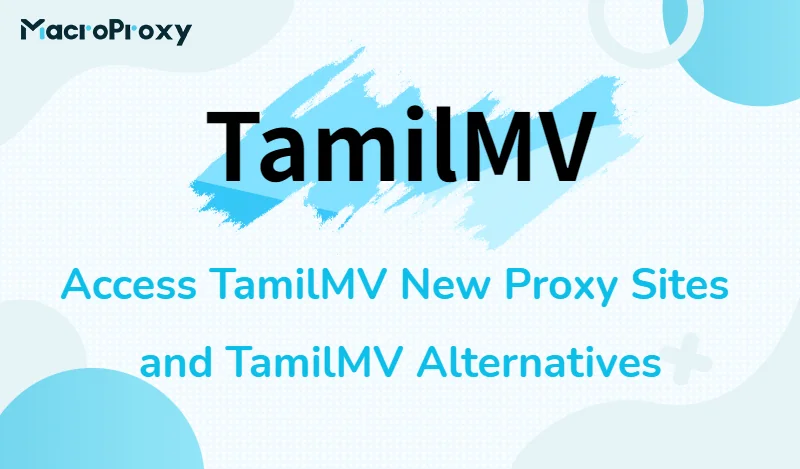Introduction TamilMV
TamilMV In today’s fast-paced digital world, accessing movies, TV shows, and other forms of entertainment has never been easier. While legitimate streaming services such as Netflix, Amazon Prime, and Disney+ offer a legal way to watch content, there’s a darker side of the internet where pirated sites thrive. One such infamous site is TamilMV, which has gained a significant following among those looking for free content, particularly in the Tamil-speaking community. But is using TamilMV worth it? In this article, we’ll dive deep into what TamilMV is, why it’s popular, the legal risks, the ethical dilemmas, and viable alternatives for enjoying content safely and legally.
What Is TamilMV?
Understanding TamilMV
TamilMV is a website known for offering pirated copies of movies, TV shows, and web series. While the focus is predominantly on Tamil-language content, you can also find Telugu, Malayalam, and Hindi movies. The site has been notorious for leaking newly released films, often within hours or days of their theatrical release, making it a go-to source for many people seeking free entertainment.
The allure of TamilMV lies in its vast catalog of content that spans different genres and languages. Whether you’re looking for the latest Tamil movie or a Bollywood blockbuster, TamilMV claims to have it all. The site functions with a simple, user-friendly interface that allows users to search, stream, or download the desired content with minimal effort.
Why It’s Popular
Despite being illegal, TamilMV continues to attract a large audience. One reason for its popularity is that it’s free. Many people do not want to spend money on paid streaming services or cinema tickets, and TamilMV offers them a way to bypass that. Additionally, not all films, especially regional ones, are available on mainstream platforms, so people often turn to piracy sites like TamilMV to access this content.
Another reason TamilMV has such a loyal following is its ability to offer new movies almost immediately after they are released. This level of instant access is tempting, particularly for movie buffs who can’t wait to see the latest releases. Lastly, the site offers a wide variety of formats and quality options, ranging from high-definition versions to smaller file sizes optimized for mobile viewing.
How It Works
TamilMV, like many other torrent websites, operates through a network of servers and links that are constantly shifting. This allows the site to remain online despite efforts from authorities to shut it down. The site doesn’t host the movies but provides links to torrents and streams where the content can be accessed. Torrenting involves downloading pieces of a file from multiple sources at once, which makes it more difficult to trace.
The team behind TamilMV is quick to upload new releases, usually offering a range of quality options from cam-rip versions to high-definition streams. This means users can choose between watching a low-quality version shortly after a movie’s release or waiting for a better-quality version to be uploaded.
The Legal Issues Surrounding TamilMV

Is It Legal to Use TamilMV?
The simple answer is no, using TamilMV is illegal. Piracy is considered a criminal offense in many countries, including India. Watching, downloading, or sharing copyrighted content without permission from the creator or rights holder is a violation of intellectual property laws. TamilMV, by distributing pirated copies of movies and shows, is violating these laws on a massive scale.
While it may seem harmless to stream or download a movie for personal use, doing so can have serious legal consequences. In many countries, governments are cracking down on piracy, and people caught using sites like TamilMV can face fines, lawsuits, or even jail time.
The Legal Repercussions
The Indian government, along with production houses and streaming platforms, has been trying to curb piracy for years. They have taken down websites like TamilMV several times, but these sites often reappear under new domain names or proxies. While the site owners and operators are the primary targets of legal action, users of these platforms are not entirely immune from prosecution.
In India, the Cinematograph Act of 1952 was amended in 2019 to make it illegal to shoot a film inside a cinema hall or distribute pirated copies online. Violators can face up to three years in prison and a fine of ₹10 lakh (about $12,000). Even though enforcement is mostly aimed at the people behind these websites, users should be aware that downloading or streaming pirated content can put them at legal risk too.
Global Crackdown on Piracy
Piracy is not just an issue in India. It’s a global problem that affects the entertainment industry everywhere. Many governments and organizations around the world are working to reduce the impact of piracy by passing stricter laws and implementing advanced tracking systems to catch violators. For example, in the United States, the Digital Millennium Copyright Act (DMCA) makes it illegal to distribute, copy, or use copyrighted content without permission.
While laws vary from country to country, the consensus is clear: piracy is illegal and can lead to severe penalties. Moreover, as technology evolves, so do the methods of catching pirates. Internet service providers (ISPs) and authorities often track IP addresses that access illegal sites, and many users have found themselves facing legal action after streaming or downloading pirated content.
The Impact of Piracy on the Film Industry
How Piracy Hurts Creators
When you watch or download a movie from TamilMV, you may not immediately think about the ripple effects your actions have on the creators of that content. However, piracy has a significant impact on the film industry. Movies and TV shows are expensive to produce, with budgets often running into the millions. These productions rely on ticket sales, streaming service revenue, and merchandise to recoup their investment and make a profit.
Piracy essentially robs creators, actors, and crew members of their rightful earnings. When a movie is pirated, the revenue that would have gone to the people who made it is lost. This not only impacts the profitability of a film but can also discourage studios from investing in similar projects in the future. Smaller, independent filmmakers are hit even harder by piracy because they rely heavily on every ticket sale or digital rental to keep their projects afloat.
The Broader Economic Impact
The economic impact of piracy extends beyond the entertainment industry. In countries where piracy is rampant, the loss of revenue from films, music, and software can have a detrimental effect on the economy. According to a report by the Motion Picture Association of America (MPAA), global piracy costs the U.S. economy alone billions of dollars each year, resulting in job losses, reduced tax revenue, and fewer opportunities for creative professionals.
Piracy also affects movie theaters, which are already struggling in the wake of the COVID-19 pandemic. When people choose to watch pirated movies instead of going to the theater, it reduces ticket sales, which in turn hurts theater owners, employees, and local economies that depend on entertainment dollars.
Piracy’s Impact on Streaming Platforms
With the rise of legal streaming services like Netflix, Amazon Prime, and Hulu, one would assume that piracy would decrease, but this hasn’t been the case. Many users still turn to sites like TamilMV because they offer free content, bypassing the subscription fees required by legitimate platforms.
However, streaming platforms also suffer financial losses due to piracy. These platforms pay for the rights to distribute movies and shows, and when pirated copies are widely available, fewer people subscribe to the service, resulting in a loss of revenue. This can lead to reduced budgets for original content, which ultimately affects the quality and variety of shows and movies available to viewers.
Ethical Considerations: Is It Worth It?
The Moral Dilemma
Even if the legal risks don’t deter you, the ethical implications of using TamilMV should give you pause. By using a site like TamilMV, you’re essentially supporting an illegal activity that exploits the hard work of others. While it may seem like a victimless crime—after all, movie stars and producers are already rich, right?—the reality is that piracy impacts everyone involved in the production process, from the big-name actors to the behind-the-scenes crew.
Moreover, by consuming pirated content, you’re contributing to an industry that profits from theft. Piracy websites like TamilMV generate revenue through ads, many of which are linked to shady or harmful products and services. In some cases, these ads can expose users to malware or phishing schemes, putting their personal information at risk.
Supporting the Industry
One of the best ways to support the film industry is by consuming content legally. By purchasing a ticket to a movie theater or subscribing to a streaming service, you are directly contributing to the livelihoods of those who worked hard to create the film. This not only helps keep the industry alive but also encourages the creation of more diverse and high-quality content.
If you’re a fan of Tamil-language films or regional cinema, supporting legal platforms that specialize in these films is a great way to ensure that more of this content gets made. When you watch content on legal platforms, your views are counted, and that data is used to determine what kinds of projects get greenlit in the future.
The Convenience Factor
Understandably, some people are drawn to sites like TamilMV because of the convenience factor. Legal streaming platforms often have geographical restrictions, meaning that certain films or TV shows may not be available in your region. Additionally, some films may take longer to release on streaming platforms, leaving viewers eager to watch them right away. However, it’s important to weigh the convenience of piracy against its consequences.
If accessibility is your primary concern, there are legitimate alternatives that can help. Many streaming platforms offer VPN support, allowing users to access content from different regions. Alternatively, some platforms provide rental options for films that are not available as part of their subscription service. While this may cost money, it’s a far safer and more ethical option than turning to piracy.




